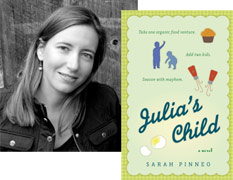Be it resolved, on this Thirtieth Day of December, Two Thousand and Thirteen, between Miss Rosie and Herself:
I. Miss Rosie shall allow herself no more than two (2) minutes per day of Dark Ruminations upon The State of Her Career, The Suspicion That She Has No Talent, and Those Who Occupy the New York Times Bestseller List.
II. Miss Rosie shall limit her Perusals of Amazon Rankings to no more than five (5) minutes perweek day.
III. Miss Rosie shall adhere to the advice of her Esteemed Agent with a Minimum of Whining.
I. Miss Rosie shall allow herself no more than two (2) minutes per day of Dark Ruminations upon The State of Her Career, The Suspicion That She Has No Talent, and Those Who Occupy the New York Times Bestseller List.
II. Miss Rosie shall limit her Perusals of Amazon Rankings to no more than five (5) minutes per
III. Miss Rosie shall adhere to the advice of her Esteemed Agent with a Minimum of Whining.
IV. Miss Rosie shall observe strict parameters for the commencement and conclusion of Cocktail Time, which shall begin no earlier than 5:00 4:30 p.m. EST on alternate days ending in “Y,” unless in the case of Emergencies or Other Unforeseen Circumstances (as defined by Miss Rosie.)
V. When Miss Rosie receives Effusive Praise from Gentle Readers, she will respond promptly with a Polite Missive of Thanks. However, when she is faced with Disapprobation of Her Modest Efforts in the form of One Star Reviews or Internet Snark, she shall NOT. Even if it kills her.
V. When Miss Rosie receives Effusive Praise from Gentle Readers, she will respond promptly with a Polite Missive of Thanks. However, when she is faced with Disapprobation of Her Modest Efforts in the form of One Star Reviews or Internet Snark, she shall NOT. Even if it kills her.
VI. Miss Rosie shall limit her consumption of the offerings of the Bravo Network to only one (1) program per season, unless and until Top Chef resumes, thereby rendering this resolution Null and Void.
VII. Miss Rosie shall immediately desist from Unproductive Fantasies involving Starred Reviews in Publishers Weekly, Lifetime Movie Adaptations, and Lunches with Tim Gunn.
VIII. Miss Rosie shall daily remind herself that she is in possession of A Multitude of Blessings—including you, Gentle Readers! Have a Happy and Healthy New Year!
Miss Rosie will not have access to the internet until the evening of January 1, but please do comment if you wish. You'll hear from her eventually. . .







